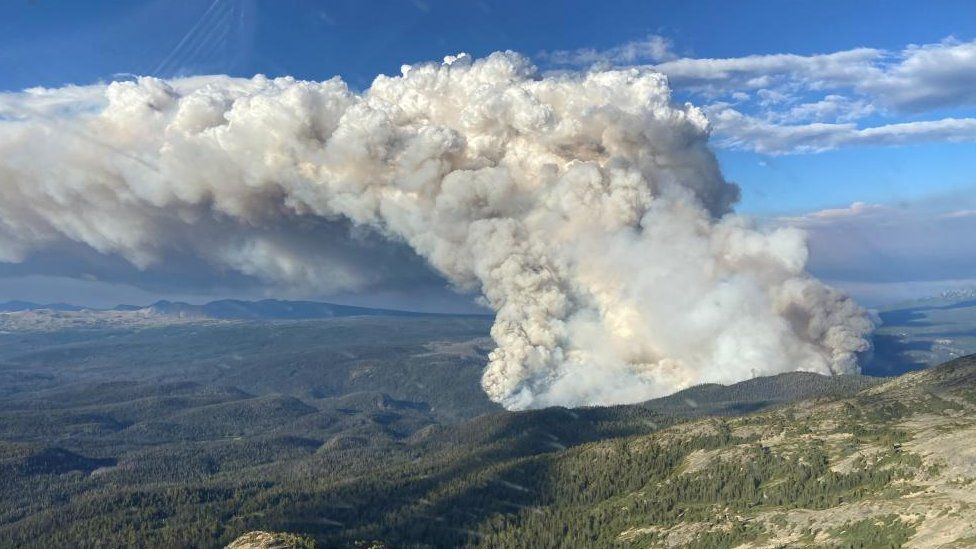ARTICLE AD BOX
 Image source, Reuters
Image source, Reuters
Wildfires, like this one in British Columbia's Tweedsmuir Provincial Park, continue to burn in Canada.
Air quality in the north and eastern US is rapidly declining as hundreds of Canadian wildfires burn out of control.
Twenty US states were under air alerts on Monday, according to AirNow, a government website that tracks harmful airborne pollutants. Major Canadian cities are also affected.
Meanwhile, Canada has deployed federal troops to fight freshly-sparked fires in the western part of the country.
Two Canadian firefighters have already died combatting the blazes.
The alerts in the US stretch from Montana in the west to New York in the east and as far south as Alabama.
Health officials in Canada are also warning of medium to high smoke risk in cities across the country including Calgary, Montreal, Quebec and Toronto.
Officials in New York have warned people to stay inside on Monday, but say conditions will not be as bad as last month when the fires turned skies orange over the state.
Residents of Midwestern states such Illinois, Michigan and Wisconsin are also being advised to limit how much time they spend outdoors.
The Air Quality Index topped 150 in multiple cities, indicating air quality that is considered "unhealthy for everyone".
Regions with an AQI over 150 on Monday afternoon included parts of Ohio, North Carolina, New Jersey, Maryland, Alabama, and Pennsylvania, according to the IQAir tracker website.
Nearly 900 fires are currently burning across Canada, according to the Canadian Interagency Forest Fire Centre. On Monday, the agency reported that 590 fires are burning out of control,
On Sunday, officials shared that a second Canadian firefighter had died while on a deployment.
"We regret to share the tragic news that a firefighter from Fort Liard has passed away from an injury sustained while fighting a wildfire in the Fort Liard District Saturday afternoon," Canada's Northwest Territories said in a statement.
On Thursday, a 19-year-old firefighter died while working near Revelstoke in southern British Columbia.
Officials have said that this summer Canada has seen its worst wildfire season on record. Over 24m acres have burned so far - an area roughly the size of the state of Indiana.
Climate change increases the risk of the hot, dry weather that is likely to fuel wildfires.
The world has already warmed by about 1.1C since the industrial era began and temperatures will keep rising unless governments around the world make steep cuts to emissions.

 1 year ago
122
1 year ago
122








 English (US) ·
English (US) ·